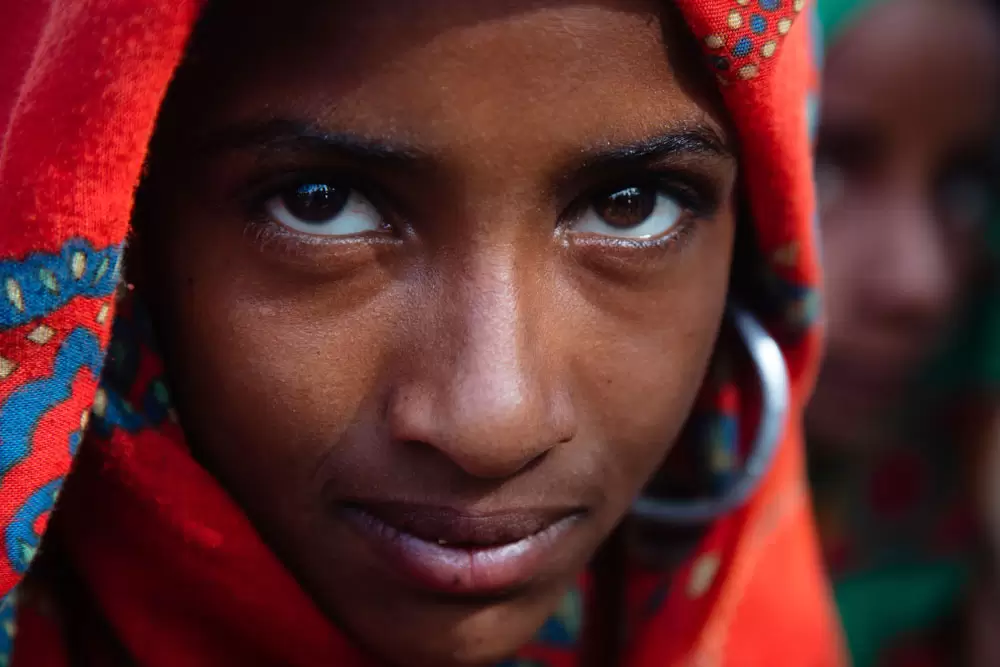Chadian Arab
Introduction / History
The Arabs are the largest ethnic group in Chad and span Northern Cameroon, Eastern Niger, and cross over Chad and Sudan. They are split into many smaller tribal groups. However, they have a shared culture and language.
The Arabs are not the original inhabitants of the Sahel. Locally there are different theories of how they made their way into this region from the Arabian Peninsula. Some claim their ancestors left the Iberian Peninsula after the Reconquista in the late 1400s. As they moved east across Arab North Africa, they migrated south into the Sahel. However, the most accepted theory is that they came west from Yemen through Sudan in the 1300s.
The Arabs who came to Chad made their livelihood as slavers and pastoralists. They herded camels across the Sahel and sold Sub-Saharan Africans as slaves into North Africa and the Middle East.
However, the slave trade has mostly stopped in Chad during the French Colonial period (1900-1960). Still, child slavery exists even in the present. Sub-Saharan African children are sold to Arab herdsmen who change their name, force them to adopt Islam, and ban them from conversing with people from their ethnic group.
What Are Their Lives Like?
The Chadian Arab's lifestyle is a mix of settled and nomadic. Some tribes have wholly settled. These groups have taken up farming millet, tomatoes, and other local crops while continuing to shepherd sheep, goats, and cattle. On the other end of the spectrum, many Arabs live a completely nomadic lifestyle traveling with their herds year-round. The most common situation is somewhere in between. Many densely populated Arab villages have few inhabitants during the dry season when much of their population leaves to seek a more abundant food supply for their herds.
Though some Arabs have moved to cities and adopted urbanized, the majority still live in a rural setting and are subsistence farmers and herdsmen living off their animals and the land. Arab men and women have distinct roles. The men are responsible for animals and crops. They are also the spiritual leaders in their homes, leading daily prayers, often sending their children to koranic school. Women are responsible for the home and children. They and the children fetch water, cook, and clean. They also sell dairy products at the market and own the home and household goods.
Marriage is a significant event in Arab life. The families generally arrange marriages. Women are often married in their early teenage years and men in their mid to late 20s. Weddings are several day affairs. The bride remains hidden to all except select women, generally the female members of her family and her new husband's family. In the wedding's finale, the groomsmen pretend to fight off the bridesmaids and kidnap the bride to take her to the husband's house.
While weddings are important events, especially first weddings, and some marriages are happy, polygamy and divorce are rampant. Only men can divorce their wives. However, wives may also leave their husbands without divorcing them. Polygamy is a common practice here as it is in many Muslim societies where husbands are allowed to have up to four wives at a time. Polygamy often creates competition between wives for their husband's attention and resources for their children.
What Are Their Beliefs?
Chadian Arabs are conservative Muslims. The majority are Sunni, but there is a significant number of Tijāniyyah as well. You can tell if an individual is Tijāniyyah or Sunni by the way they pray. The Tijāniyyah will cross their arms over their chest when standing, while the Sunni will let them hang down. Whether Sunni or Tijāniyyah, the Arabs in Chad strictly follow the five pillars of Islam. They often wear amulets and fetishes with the Koran written inside them to ward off evil spirits or seek their protection.
Three religions co-exist in Chad: classical African religions, Islam, and Christianity. However, there is a great divide in Chad between the northern peoples (Muslims) and the southern peoples (Christian/Animist). There is even a predominantly Arabic speaking church in the central region fo Chad called the Guera. This church has had difficulty reaching the Arabs in the past. This difficulty is partially due to a significant ethnic divide caused by the history of slavery and violence between the groups. Recently, however, this church has been increasing its efforts to bring the Gospel to the Arabs and other Muslim majority people groups. The Gospel's spread into the north of Chad is helped by the recent completion of the Chadian Arabic Bible in 2018.
What Are Their Needs?
In the last several years, there has been a small group of Arab believers in central Chad. These believers have endured significant persecution, and many have remained faithful. They are interested in connecting and working with the existing church and working with them to establish leaders and grow in their faith.
Please pray for the few existing Arab believers that God would keep them in his name and keep them from the evil one. (John 17)
Please pray for love to abound between the Arab believers and the established church, that a beautiful and loving unity would grow between them that would set them apart from the rampant tribalism in Chad.
Please ask our Lord, the almighty, to stretch out his hand to heal, and perform signs and wonders through the name of his holy servant Jesus. (Acts 3:30)
Please pray for continued stability in Chad, and for the Muslim population to gain respect for Christ, and the Christian community.

